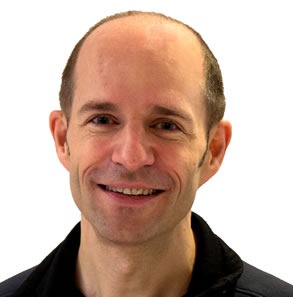Most people have already experienced a fungal infection (mycosis) of the outer layer of the skin, athlete’s foot or ringworm. Whereas such infections may be cumbersome and often difficult to cure, usually they are not dangerous. However, in cases where a fungus causes a systemic infection, this is, it infects internal organs such as lungs or brain, the infection may turn into a life-threatening disease. Of course, only pathogenic fungi cause problems and the degree of virulence varies.
There is a particular risk of severe fungal infections for individuals with a weak or compromised immune system, for example patients suffering from AIDS, diabetes, chemotherapy or who have undergone organ transplantation. We are exposed to airborne fungal spores entering the respiratory system, but in immunocompromised individuals these spores may germinate and the fungus may spread within the body and destroy affected organs.
The major causes for human fungal infections are Candida and Aspergillus species, yet there are many other ones that can cause infections. In any case, these infections inflict sever suffering, both physical and mental.
Please can you outline what antifungal drugs are currently available?
For treating systemic fungal infections, most often so-called polyene macrolides (e.g. amphotericin) and lipopeptides (e.g. echinocandins) are clinically used. These therapeutics efficiently target the fungal cell wall. However, when given intravenously, the drugs cause severe side effects, for example, amphotericin is nephrotoxic (poisonous for the kidney). There is an urgent need for new and improved antiinfectives.
Please can you explain what jagaricin is?
Jagaricin is produced by a bacterium that infects mushrooms such as white button. The compound belongs to the group of lipopeptides. Besides aiding in the infestation of the mushroom, it is active against a variety of other fungi including human pathogens such as Aspergillus fumigatus and Candida albicans.
How did your research into jagaricin originate?
We became aware of less investigate bacteria that can infect mushrooms and assumed that the bacteria likely employ small compounds that weaken or kill the fungus. We then reasoned that such compounds would be potentially active against other fungi and thus perhaps also useful for treating mycoses.
Sequencing the genome of the bacterium proved to be very helpful because with the genomic inventory at hand we were able to predict its potential for metabolite production. We noted that the candidate genes were silent under standardized culture conditions in the laboratory. Thus, we wanted to catch the bacterium in action and monitored how it infects the mushroom.
Using a modern method to visualize the production of metabolites (imaging mass spectrometry) we discovered that a compound with a particular molecular mass accumulates in lesions of the mushroom tissue.
Finally, we succeeded in finding growth conditions to produce sufficient amounts of the antifungal agent for a full structural elucidation and biological testings.
What impact do you think your research will have on antifungal drugs?
I believe that our work is the proof of principle that mushroom pathogens are a promising source of novel antifungal agents. Furthermore, the combination of genome data and imaging techniques will be most useful for the discovery of potential therapeutics that are only produced in a particular biological context. Very likely, jagaricin would have been overlooked using a classical approach.
How long do you think new antifungal drugs will take to develop?
The discovery of a new anti-infective agent does not at all imply that this compound will soon be available at the pharmacy. In the case of successful clinical trials, the development of a new drug typically takes around ten years. Notably, only a tiny fraction of the potential drugs will make it into clinical trials, and the development of a new drug is extremely cost-intensive.
Do you think these new antifungal drugs will be better than current antifungal drugs?
It is a bit too early to speculate on that. We hope that a pharmaceutical company will be interested in evaluating the therapeutic potential of jagaricin.
What plans do you have for further research into this field?
We have various on-going projects that focus on the discovery of antibiotics from so far neglected sources, including bacteria and fungi, combining the strengths of chemistry and biology.
What do you think the future holds for antifungal drugs?
To answer that we may ask ourselves how would our future look like without antifungal drugs. Unfortunately, considering the immense costs for drug development, for pharmaceutical companies it is far more lucrative to develop other drugs such as lipid reducers, antidepressants, drugs many individuals take over a long time – rather than a few doses of an antibiotic. General programs in this area of research and translational measures are urgently needed.
Where can readers find more information?
www.hki-jena.de
About Prof Christian Hertweck
 Christian Hertweck (*1969) gained a Ph.D. in Organic Chemistry at the University of Bonn and at the Max Planck Institute for Chemical Ecology.
Christian Hertweck (*1969) gained a Ph.D. in Organic Chemistry at the University of Bonn and at the Max Planck Institute for Chemical Ecology.
He was Feodor Lynen postdoctoral fellow at the University of Washington, Seattle, before starting his own research group at HKI Jena.
Since 2006 he has been full professor at the Friedrich Schiller University, Jena, and head of the Department of Biomolecular Chemistry at the Leibniz Institute for Natural Product Research and Infection Biology (HKI).
His research interests encompass bacterial and fungal natural products, with a focus on biosynthesis, pathway engineering, and microbial interactions.